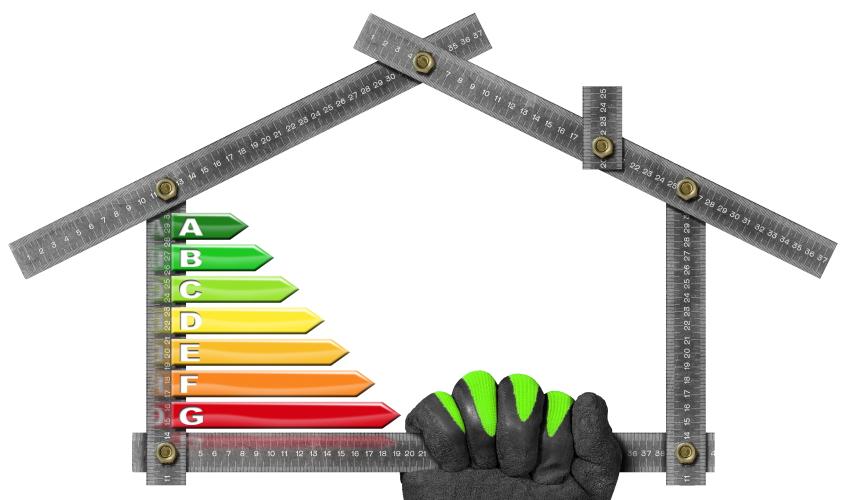
The Ecological Transition of the Home
ACCORDING TO THE RENOVATION WAVE STRATEGY, 275 BILLION EUROS PER YEAR OF ADDITIONAL INVESTMENTS IN THE CONSTRUCTION SECTOR ARE NEEDED TO ACHIEVE THE EU 2030 OBJECTIVES. TO SIMPLIFY AND TO COORDINATE THE VARIOUS STAKEHOLDERS, SOCALLED ONESTOPSHOPS ARE BEING IMPOSEDby Edoardo Croci, Annamaria Bagaini, Tania Molteni, professors at Green Bocconi
The building sector has a significant role in achieving European ambitions in terms of energy consumption and CO2 emission reduction. Energy building renovation represents a strategic driver for the overall EU energy-climate policy, considering the high mitigation potential and the relevant co-benefits, such as air quality improvement. Although many policies have been enacted to boost building renovation in European countries, the current renovation rate remains too low, due to several barriers. According to the “Renovation wave” strategy, around €275 billion per year of additional investments are required in the building sector to reach the EU 2030 targets, including €150 billion for energy efficiency. The EU’s recovery instruments provide an unprecedented volume of resources for green transition since 37% of expenditure is focused on climate-related assets, including buildings’ energy efficiency.
These funds will strongly contribute to revitalising the construction sector, but further efforts are required to decarbonize the building stock and overcome barriers. Building energy efficiency improvements require the engagement of several stakeholders, such as homeowners, architects, real estate operators, and financial institutions, demanding different services which offer is highly fragmented. One-Stop-Shop (OSS) are emerging as innovative business models thanks to their capacity to facilitate the renovation process, by offering multiple services in “just one physical or a virtual stop” for both edges of the renovation chain. Indeed, OSS can provide different kinds of services: from information access to technical assistance, to fixed package solutions, to market players coordination, to financial support, up to general contracting services where the OSS is responsible for all stages of the renovation process. The aim is to simplify renovation processes by pooling together expertise and knowledge to reduce the time and effort required, increase quality of works, and reduce the gap between supply and demand sides. OSS concept can have various setups, involve different actors, and lead to different impacts on the renovation process. Through an extensive review on OSS across the EU, three business model archetypes have been identified in the paper “Boosting energy home renovation through innovative business models: ONE-STOP-SHOP solutions assessment” published by the authors in the Journal of Cleaner Production. These are: Facilitation model, Coordination model, and Development model. These archetypes have been categorized based on differences in five elements: value proposition, provided services, partnership management, revenue stream, and shared value. The Facilitation archetype provides lighter support to homeowners by offering information access, and technical and financial advice. A good example of this archetype is the Haarlemse Huizenaanpak initiative in the Netherlands, which provides free information access through an online integrated platform, along with technical consulting services, like energy audit and home diagnostic.
The Coordination archetype operates in collaboration with other market players (e.g., banks, contractors, suppliers) in order to support homeowners along the whole energy home renovation process, from consulting, to project management and monitoring of energy savings. The Superhomes initiative in Ireland represents a good example, providing technical and financial advice along with support in selecting and managing suppliers and constructors, allowing a guarantee of high-quality work. The Development model provides the strongest support to homeowners, offering tailored and multidimensional renovation services under its responsibility, and covering the whole renovation journey. A good example is the ARTEE-Nouvelle initiative in France, which offers “key-in-hand” solutions for home renovation, combining consulting, project designing, financial products, and follow-up services. The identification of these archetypes contributes to understanding how different OSS models create and deliver value within the renovation chain and which benefits they bring to home energy efficiency processes. Results are now applied to develop and launch a targeted OSS initiative in Padova within the Horizon 2020 project PadovaFIT Expanded. The project aims at creating and piloting OSS initiatives in four European cities which strongly differ in terms of buildings characteristics, climate conditions, regulatory framework, market maturity, and customers’ needs: Padova OSS will be launched at the end of 2022, followed by Timisoara in Romania.
